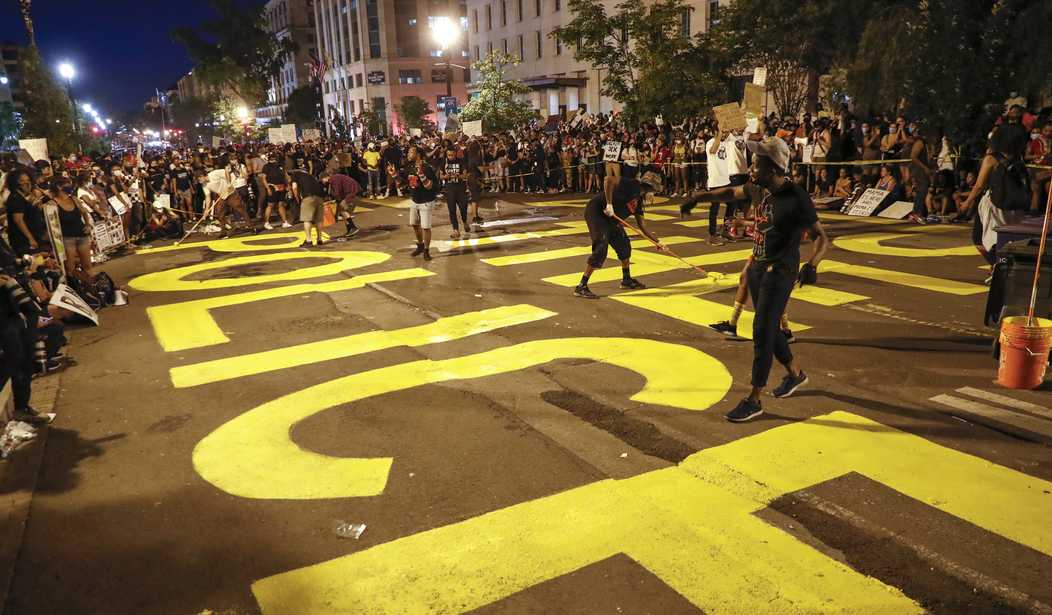Since the anti-police movement came to prominence after the killing of Michael Brown in 2014 and exploded after the death of George Floyd in 2020, many reasonable people have speculated whether the protests against police have led to a rise in violent crime.
City Journal editor Heather Mac Donald once dubbed this idea the Ferguson Effect, tying the protests to higher rates of violent crime which have undone many of the strides law enforcement has taken in the previous decades.
Two recent studies — one brand new and one from just over two years ago — demonstrate that the Ferguson Effect is a real phenomenon. They provide evidence that the police protests that followed officer-involved shootings led to a decline in proactivity from police, which in turn allowed violent crime to increase.
The newest study, published in the Feb. 2022 issue of the Journal of Public Economics, demonstrates that “high-profile killings reduced policing activities.”
When they specifically looked at statistics in St. Louis in the aftermath of Brown’s killing, researchers Cheng Cheng and Wei Long made a discovery that shouldn’t surprise many people, as Charles Fain Lehman reports in City Journal:
Their findings manage somehow to be both unsurprising and shocking. In the immediate aftermath of Brown’s death, self-initiated arrests fell 62 percent. Similar declines are seen across nine out of 11 categories of self-initiated activities, including foot patrol (down 82 percent) and pedestrian checks (76 percent). Notably, the decline in arrests is concentrated among misdemeanor arrests (more discretionary than felonies) and among arrests of blacks (rather than whites). This reduction in police activity persisted for at least the next two years. In the same period, the city experienced a significant rise in homicide and aggravated assault.
Expanding their study to more cities, Cheng and Long concluded that cities with higher proportions of black residents saw both a lower arrest rate and a rise in homicides.
Related: Law Enforcement Deaths Hit Record High in 2021: Report
The other study from Sept. 2019 presents similar findings.
Deepak Premkumar of the Public Policy Institue of California notes in his introduction:
This paper shows that after police killings that generate significant public attention and scrutiny, officers reduce effort and crime increases. The effects differ by offense type: Reduced police effort yields persistently fewer arrests for low-level offenses (e.g., marijuana possession), but there are limited changes in arrests for violent or more serious property crimes. The increase in offending is driven by murders and robberies, imposing significant crime costs on affected municipalities.
Premkumar found that, after major officer-involved incidents, police departments saw significant declines in arrests for misdemeanor crimes but little change in arrests for violent offenses and property crimes. At the same time, murders and robberies went up to the tune of a 10% to 17% increase, while thefts went up slightly.
It’s worth noting that Premkumar released his study before the George Floyd killing and the spike in anti-police activity that took place in the aftermath of that case.
If these two studies tell us anything, it’s that when a shooting or other major incident involving a police officer takes place in a city, the ensuing spotlight of scrutiny leads law enforcement to become more cautious at best and skittish at worst. Fearing public castigation and further protest, police departments let citizens get away with lesser crimes. As a result, crime goes up, including violent offenses.
As long as Black Lives Matter, Antifa, and other far-left organizations are ready to pounce when an officer shoots and kills someone, this cycle will continue. We’re seeing it in the rising murder rates in major cities, and when the left combines the Ferguson Effect with policies that encourage crime, the situation isn’t going to get better anytime soon.
The movement to defund the police doesn’t need to touch a budget line item to make a difference. The Ferguson Effect shows us that all the left needs to neutralize law enforcement is the whiff of protest and greater scrutiny after an incident. This climate makes the job of our police departments even more difficult than it already is.










Join the conversation as a VIP Member